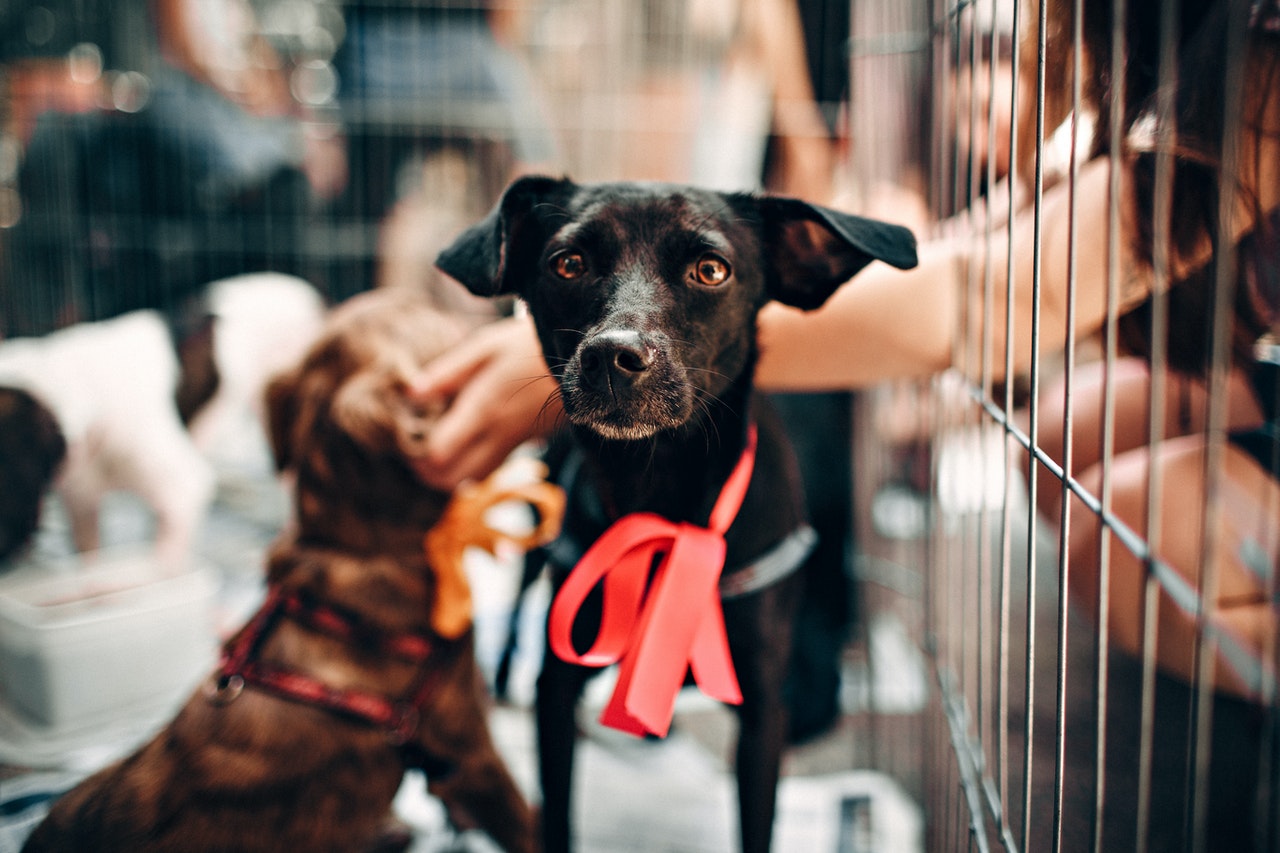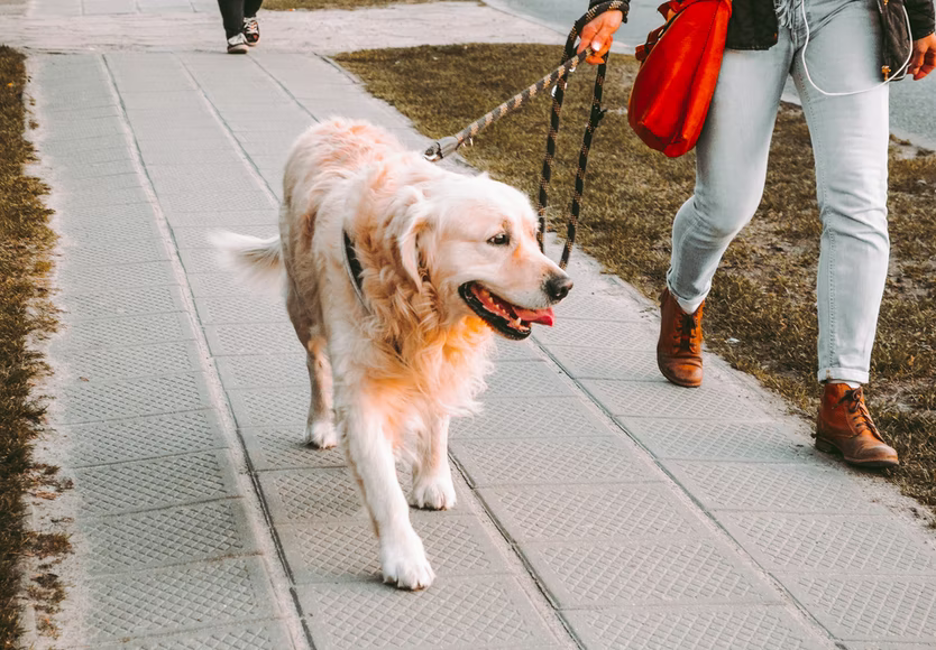5 Good Reasons Why Dogs Howl and What to Do About It
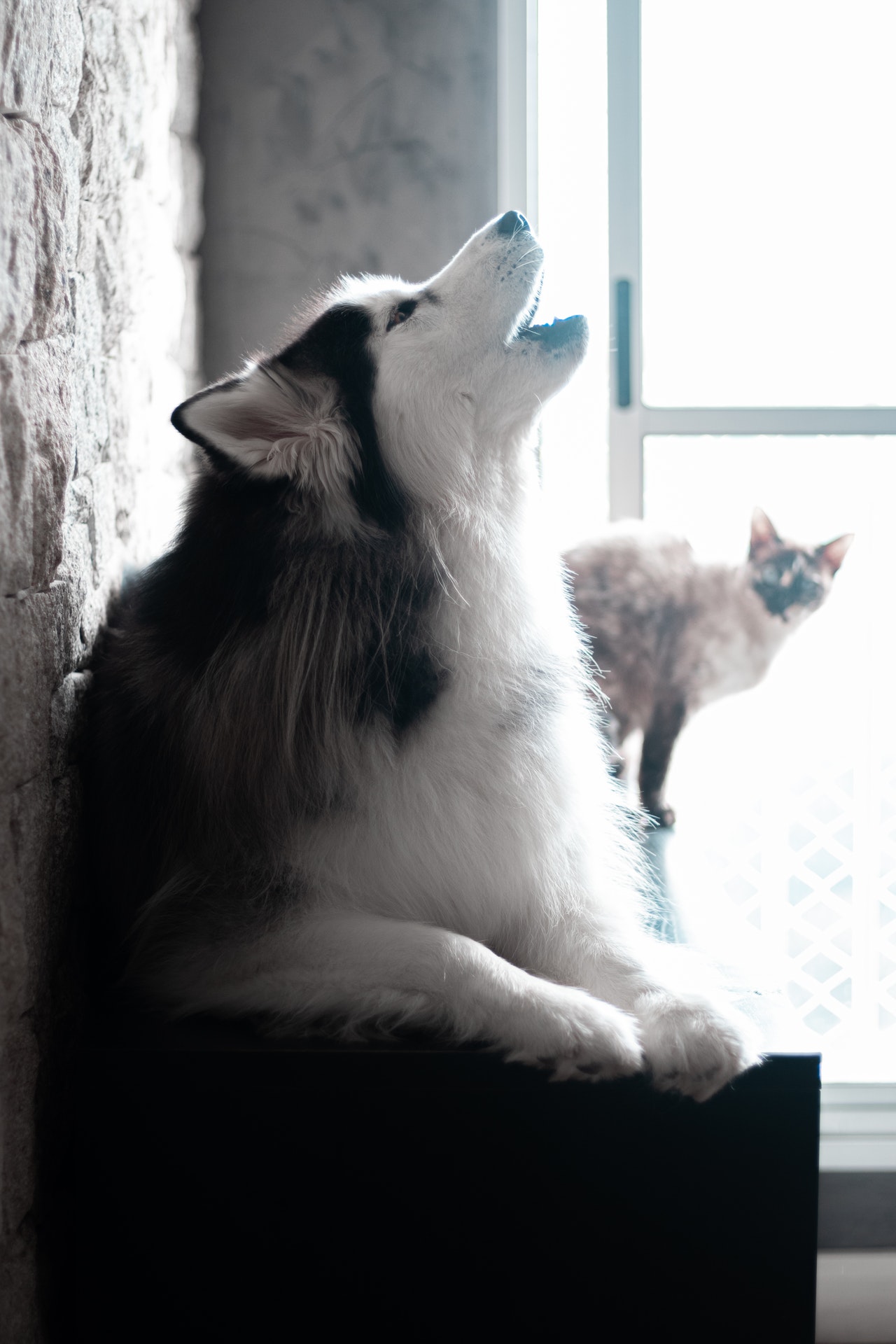
Humans talk. Animals make a sound.
Dogs bark, and sometimes they howl.
Much to our (and our neighbor's irritation), dogs occasionally howl more than we wish they would.
An old wives’ tale or superstitious belief says that a dog’s howl is an omen of death.
Howling is usually heard in horror movies when monsters are about to pounce. No wonder most people relate it to something scary.
But have you ever stopped and wonder what the real reason is behind your dog’s howling and why they do it excessively at times?
Here are five good reasons why dogs howl and what to do about it if it gets out of hand.
5 Good Reasons Why Dogs Howl and What to Do About It
1. Dogs howl when they’re anxious
Dogs with separation anxiety usually howl when left alone.
Anxiety howling or separation anxiety howling is what we often refer to as
doggie crying.
They sound like they’re lamenting our absence.
Dogs develop separation anxiety for many reasons.
Most rescue dogs display this behavior as they’ve been abandoned before and fear that it might happen again.
Death of someone familiar to them like a family member or another pet, change in routine, or even aging could also trigger anxiety.
Dogs in distress don’t only howl but also resort to destructive behaviors.
Anxious dogs would chew furniture, destroy toys, tremble, pant, bark
excessively, lick their paws until they’re raw, pace, and even eliminate inside the house.
You can say that howling is a cry for help in this situation.
For your dog, you are his world. When you’re out of sight even for just a few minutes, it breaks his heart.
A sudden change in his environment can also trigger his anxiety.
What can you do about your dog’s anxiety howling?
- Stay calm. Dogs can sense your vibe so when you’re anxious, they’ll adapt your energy and it will add to their anxiety.
- Give them dog calming supplements. Choose dog treats or supplements that are natural to avoid synthetic medicine’s side effects.
- Play music or turn on the TV to keep them entertained.
- Play with your dog or go on a walk before leaving so he’s already spent his energy. Highly energetic dogs can get bored fast when they’re not doing
anything. If you have to leave them at home, try to work them out before
going so they don’t get antsy. - Leave him with his favorite toy or your shirt with your scent in it.
- Train your dog to behave while you’re gone and reward them for their good behavior.
2. Dogs howl when triggered by sound
The sound of siren from a passing ambulance or firetruck.
Car horn.
Music coming from instruments like piano.
These may sound normal to us but dogs have “super hearing”.
Dogs can hear sounds as high as 47,000 to 65,000 Hz. Humans can only detect sounds from about 20 Hz to 20 kHz frequencies.
Why do dogs howl at sirens and other sounds?
A sudden loud noise can trigger your dog’s anxiety.
High-pitched sounds can hurt their ears and make them howl.
Sometimes a dog howls when they hear music playing so they “sing” along.
Usually, they stop howling when the source of sound stops.
What if this happens every day?
What can you do when external sounds that trigger your dog’s howling are
beyond your control?
Use desensitization and counterconditioning (DSCC) to help your dog learn to be quiet even when they hear these triggers.
Counter-conditioning is a technique that helps your dog replace negative behavior with a positive one.
Desensitization means repeatedly exposing your dog to the stimulus that normally causes his anxiety response in a way that he does not respond negatively.
Fear, anxiety, phobias, and aggression can often be treated by systematic desensitization or counterconditioning.
Talk to a dog behaviorist and see how they can help in resolving your dog’s
behavioral problems.
3. Dogs howl to seek your attention
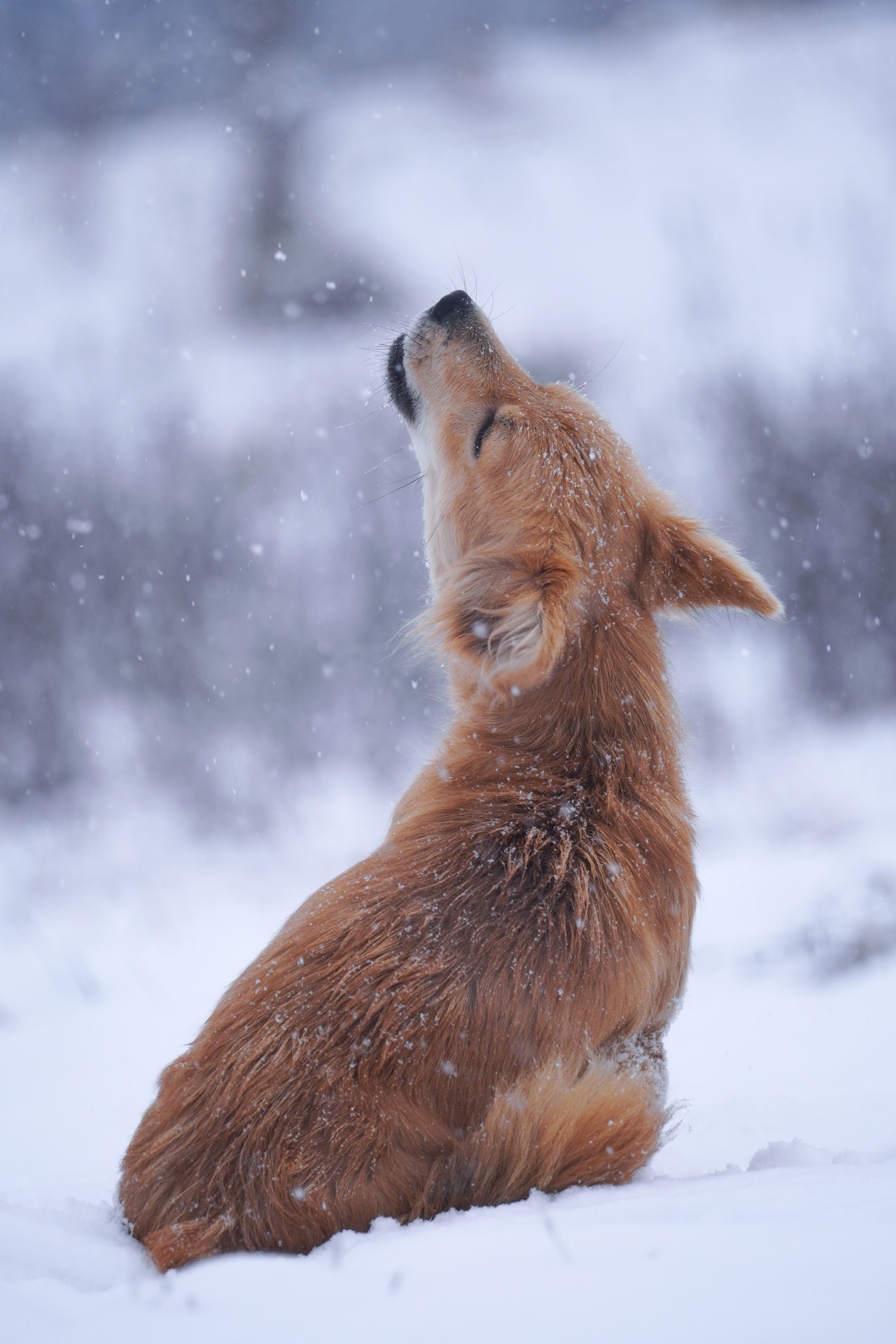
Sometimes dogs fake cry or howl to grab their owner’s attention.
Like little kids who throw tantrums and attempt to get what they want, dogs
howl.
Dogs usually ask for food, belly rubs, or demands to go out. Again.
You may have forgotten that it’s time for their walk so they’re trying to remind you.
When you’re too busy, your dog may resort to howling to communicate with you.
What can you do if your dog starts howling to seek attention?
Let them know that howling is not the best way to communicate.
- Ignore them. You need to discipline your dog when this happens. Show them that howling is not an effective way to ask you for anything. Avoid eye contact and touching while they're throwing tantrums or howling.
- Use desensitization or counterconditioning (DSCC).
- Don't scold them or yell. Your dog might think you're just howling with them.
- Reward positive behavior. Give them a treat or extra belly rubs when they’re quiet or behaving like the angels that they are.
It is still best to get to know your dog and figure out what they want. They may need to go potty urgently so you should consider this reason before
ignoring them completely.
4. Dogs howl when they’re sick
If only dogs could speak. It would be easier for dog parents to know what bothers them, where it hurts, and what they can do to help alleviate their dog’s pain and suffering.
Dogs who are sick or hurt sometimes howl to express how they feel.
What can you do when dogs howl for no apparent reason?
Stop guessing and take them to the vet.
Even when there’s no physical evidence or they’re not exhibiting any sickness, the vet can help rule out illness or injury before it gets worse.
5. Dogs howl to communicate with other dogs
Why do dogs howl at each other?
Dogs would announce their presence to other dogs by howling.
It’s like saying, “I’m here! We’re okay. How about you? What’s going on out there?”
Whatever they’re talking about, dogs howl to respond or talk to other dogs. They could be warning them not to cross their territory or letting them know something’s up in the neighborhood.
Don’t you wish we’re privy to their conversation?
What can you do when dogs start howling with other dogs?
All you can do during this time is wait for them to finish their chorus. It usually doesn’t last that long.
You can also try to distract them from the howling by calling their name, or
mentioning their favorite word.
Howling in dog’s relatives
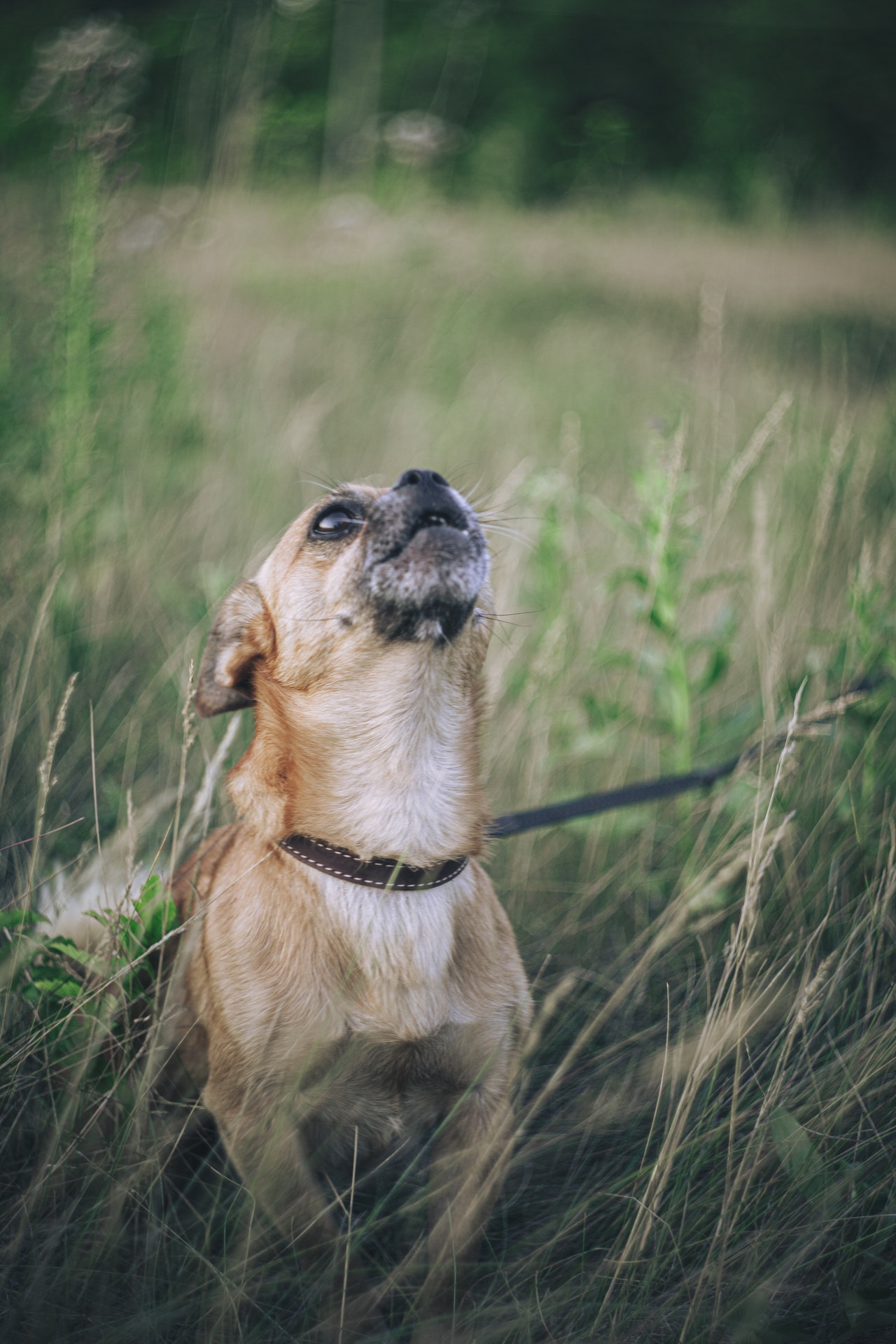
Wolves which are dogs’ closest relatives howl to warn other wolves to stay away from their territory.
Howling also helps wolves locate each other when they get separated from the pack.
You can say that their howling is seasonal.
According to Doug Smith, senior wildlife biologist at Yellowstone National Park in Wyoming, wolves’ howling drops to almost zero during the denning season.
When their pups are born, they instinctively want to protect them from predators. So they don’t howl to give away their location.
Jackals, who are also said to be related to dogs, howl to deter intruders and call on family members.
What dogs don’t howl
Basenjis produce a sound that’s more like a yodel than a howl.
Greyhounds characteristically don't bark or howl, but do a vocalization called a “roo”. Basset hounds and beagles sometimes “bay”.
What dogs howl the most
Siberian Huskies, Alaskan Malamutes, Shetland Sheepdogs, Bloodhounds, and American Eskimo Dogs are known to howl most often (and hilariously).
Conclusion
Contrary to urban legends that there’s a spiritual meaning behind a dog’s howl, howling is really just a dog’s way of communicating with us and with each other.
Dogs in the olden days would howl to warn humans about a storm coming or if they sense danger nearby.
They still warn us up to this day, only now it’s mostly about a mailman or if they see a tree branch swaying a little suspiciously.
Scientifically, dogs have better sense of smell and sound than humans. They can hear and smell thunderstorms before humans could and howl to let us know.
Howling is not related to the time of the day but a response to a trigger. So dogs can howl day or night.
Whether they’re bothered or triggered by a sound, feeling fearful, excited, injured, or sensing danger, howling is our dog’s unique way of conversing with us and with each other.
Howling is normal and should be expected in dogs. When they do it excessively or if it’s accompanied by aggression, seek help from professionals.
Dogs’ howls especially when they’re still wee puppies can be amusing and cute. But when they grow into adults and howl loudly during bedtime, it can get annoying.
Stop losing sleep over something that can be dealt with.
Let an animal behaviorist or animal psychologist treat excessive reactions of your dog to triggers to control their behavior.
Maybe then they’ll stop howling, give your ears some rest, and offer your
neighborhood some peace and quiet.
Observe your dog closely the next time they howl. Know what could possibly have caused their howling, and see what you can do about it.
Leave a Reply
You must be logged in to post a comment.

